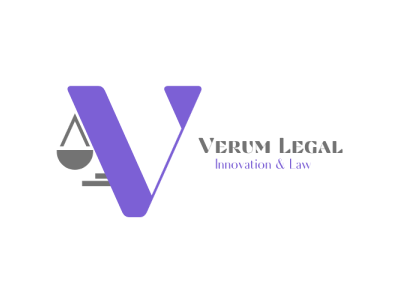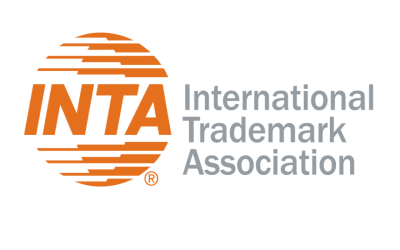Intellectual property encompasses a range of rights that safeguard intangible assets, providing creators with exclusive control over their creations for a specified period and includes trademarks, copyrights, patents, industrial designs, trade secrets, and geographic indications. Violations of an IP right is referred to as “infringement“ concerning patents, copyrights, and trademarks, while “misappropriation“ primarily pertains to trade secrets and ideas.
Trade Secrets, unlike patents and trademarks, which require public disclosure of protected intellectual property, demand the opposite—keeping the information confidential and undisclosed. Trade secrets encompass valuable knowledge or information that holds significance due to their limited accessibility, can pertain to several types of information and carry substantial economic value for both companies and nations.
The trade secret regime plays a crucial role in safeguarding the IP generated by companies. The Supreme Court of India has acknowledged a limited “common law” right to trade secret protection. A trade secret doesn’t necessarily have to be a complex chemical formula. Any valuable pattern, device, blueprint, recipe, formula, or compilation of information utilized in business operations that provides a competitive advantage to its proprietor, can qualify as a trade secret. Examples of trade secrets are – Google’s search algorithm, KFC’s secret recipe, the secret formula of Coca-Cola, etc.
To qualify as a trade secret, the information must meet the following criteria:
Secrecy: It must not be readily accessible to individuals regularly involved with such information.
Commercial value: It must possess economic significance or value for the business.
Reasonable measures: The lawful custodian of the information must have taken reasonable steps to maintain its confidentiality.
Misappropriation
In simpler terms, misappropriation refers to the act of taking or using something that belongs to someone else, without permission. If the misappropriation is of trade secrets, it is considered a type of unfair competition between businesses. Companies may attempt to legally obtain its competition’s trade secrets through methods like reverse engineering or poaching their employees. Some companies may also resort to unlawful means such as hacking into computer systems or violating non-disclosure agreements.
Twitter vs Meta Lawsuit
On July 5, 2023, Meta Inc. was served a formal pre-action notice by X Corp, the acquiring company of Twitter Inc., accusing Meta of the following legal violations:
- Breach of the non-compete clause by Meta’s employment of former Twitter employees.
- Misappropriation of trade secrets.
- Intellectual property theft.
This notice outlines Twitter’s intention to take legal action against Meta. But, how far and how successfully can Twitter establish its case against Meta? If Twitter is particularly trying to prove the accusation of intellectual property theft and misappropriation of trade secrets, Twitter will have to demonstrate the alleged infringement. The outcome will be influenced by the presentation of compelling evidence, existing contractual obligations, legal arguments, and the interpretation of relevant intellectual property laws.
What does the law say in this regard?
Most of Twitter’s allegations are set on their Employee’s existing contractual obligations relating to Non-compete as well as IP ownership and the same was allegedly violated by Twitter’s ex-employees hired by Meta.
According to Section 16600 of the California Business and Professions Code, a non-compete clause is null and void as it is typically unenforceable in California, where both Twitter and Meta conduct their businesses. Thus, it is against the law within the state of California to execute non-compete clauses that restrict the career prospects of an employee. Thus, the matter of breaking a non-compete provision will not succeed in a courtroom, unless Twitter’s allegations of misappropriation of its Intellectual Property also holds good.
The most significant issue raised by Twitter is the allegation of intellectual property theft by Meta in the creation of Threads. However, the mere similarity between the two apps does not necessarily indicate theft, and extensive evidence is needed to establish it. Only time will tell if Twitter is able to present evidence to showcase IP theft and misappropriation in a just and proper manner.
The Twitter and Threads dispute highlights the significance of trade secrets in the business and tech sectors. Businesses must establish agreements with employees and contractors regarding trade secrets and implement non-disclosure agreements when disclosing confidential information. Even without formal contracts, trade secret claims can be an effective tool for businesses to protect against unauthorized use of their trade secrets by competitors.
You may also like…
INTA files statement in intervention in EU case on the inherent distinctiveness of color combination trademarks
New York, New York—July 24, 2024—The International Trademark Association (INTA) has filed a Statement in...
Bytedance stumbles in Singapore: IPOS rejects TIKI trademark challenge
The social media giant Bytedance, owner of the ubiquitous TikTok platform, recently suffered a setback in Singapore....
TOUR DE FRANCE fails in the third stage against German fitness studio chain
At the end of June, the 111th edition of the Tour de France kicked off. June also saw the end of a dispute between...
Contact us to write for out Newsletter















